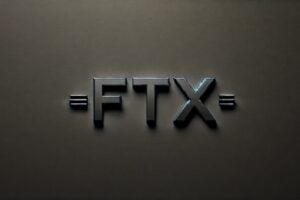
The reorganization plan of FTX is operational: refunds to users have started. With priority for claims under $50,000, users must complete requests within 60 days, but criticisms of the refund system persist.
Let’s see all the details in this article.
Controversies over FTX’s refund plan: criticisms of the criteria based on 2022 prices
The cryptocurrency exchange FTX, declared bankrupt in November 2022, has entered a new crucial phase: the process of user reimbursements.
With the reorganization plan approved in October 2024 and becoming operational on January 3, 2025, users who have suffered losses can finally begin to recover their funds. However, as the process progresses, controversies are not lacking.
According to the repayment plan, users with credits up to $50,000 will receive priority. These repayments should be completed within 60 days from the start of the process, that is, by March 2025.
To access the refund, customers must submit a request through the official FTX website.
The procedure was announced as transparent and secure, but not without risks: the administrators of FTX warned users to be cautious of possible phishing emails, which could mimic the official ones from the exchange.
The collaboration with Kraken and BitGo, two important players in the sector, was crucial to ensure the distribution of the funds.
Both platforms have already started sending communications to the users involved, initiating the process of verifying the requests.
Despite the progress, the reorganization plan has not obtained the unanimous consent of FTX users.
Some creditors have harshly criticized the decision to base the reimbursements on the prices of the criptovalute held by the exchange at the time of the bankruptcy, in November 2022.
At the time, the value of Bitcoin and other cryptocurrencies was significantly lower compared to current market levels. For example, the price of Bitcoin has increased by over 400% since then.
This disparity has led many users to consider the refund system unfair, which does not take into account the appreciation of asset values over the past two years.
Furthermore, the plan provides that 98% of users receive 119% of the declared value of their funds, but dissatisfaction remains due to the lack of adjustment to current prices.
The legal saga of FTX
The collapse of FTX shook the cryptocurrency sector, leading to numerous accusations and convictions against the executives of the exchange.
Among the main parties involved, the former CEO Sam Bankman-Fried (SBF), the former CEO of Alameda Research Caroline Ellison, and the former co-CEO of FTX Digital Markets Ryan Salame have all been sentenced to prison terms for their role in the fraud.
On the contrary, Nishad Singh, former technical director, and Gary Wang, co-founder of FTX, managed to avoid prison, probably thanks to their cooperation with the authorities in the investigations.
In the meantime, SBF has filed an appeal against his conviction, seeking to overturn the verdict.
The impact on the sector and beyond
With the reorganization plan underway, it is estimated that FTX needs to distribute about 16 billion dollars to complete the user reimbursement.
This process could mark the final chapter of one of the greatest crises in the history of cryptocurrencies, offering a minimum of justice to the investors affected.
However, the FTX case leaves a complex legacy. On one hand, it highlights the need for more stringent regulations to prevent similar frauds and collapses in the future.
On the other hand, it shows how cryptocurrencies and exchanges remain subject to high risks, both for users and for industry operators.
In conclusion, the refund process of FTX represents a fundamental step to close a long and troubled saga.
While some users will receive their funds in a short time, the criticisms and unresolved issues related to the reorganization plan continue to cast shadows on the exchange and the future of the bull and bear sector.

 8 hours ago
7
8 hours ago
7









 English (US) ·
English (US) ·